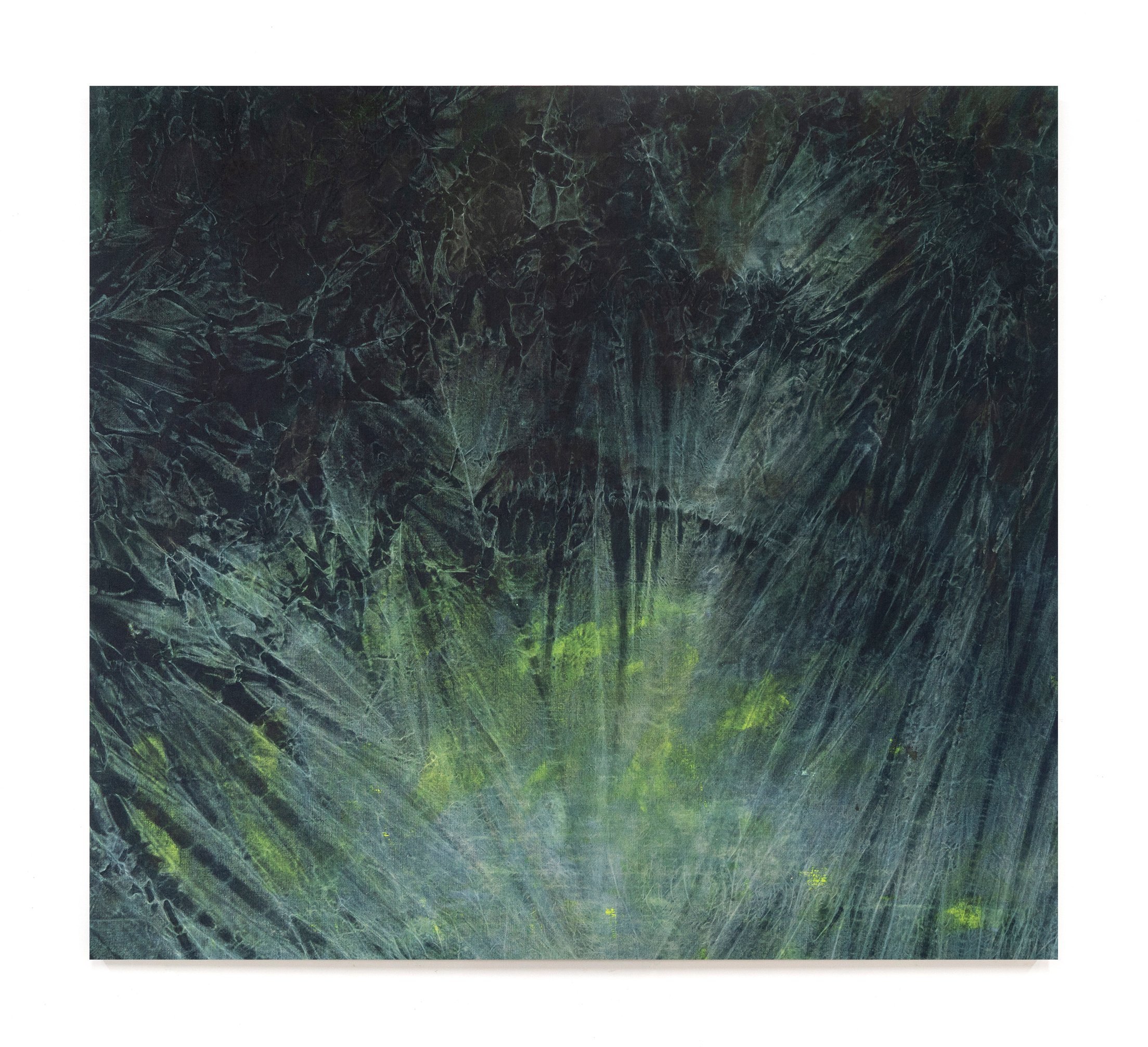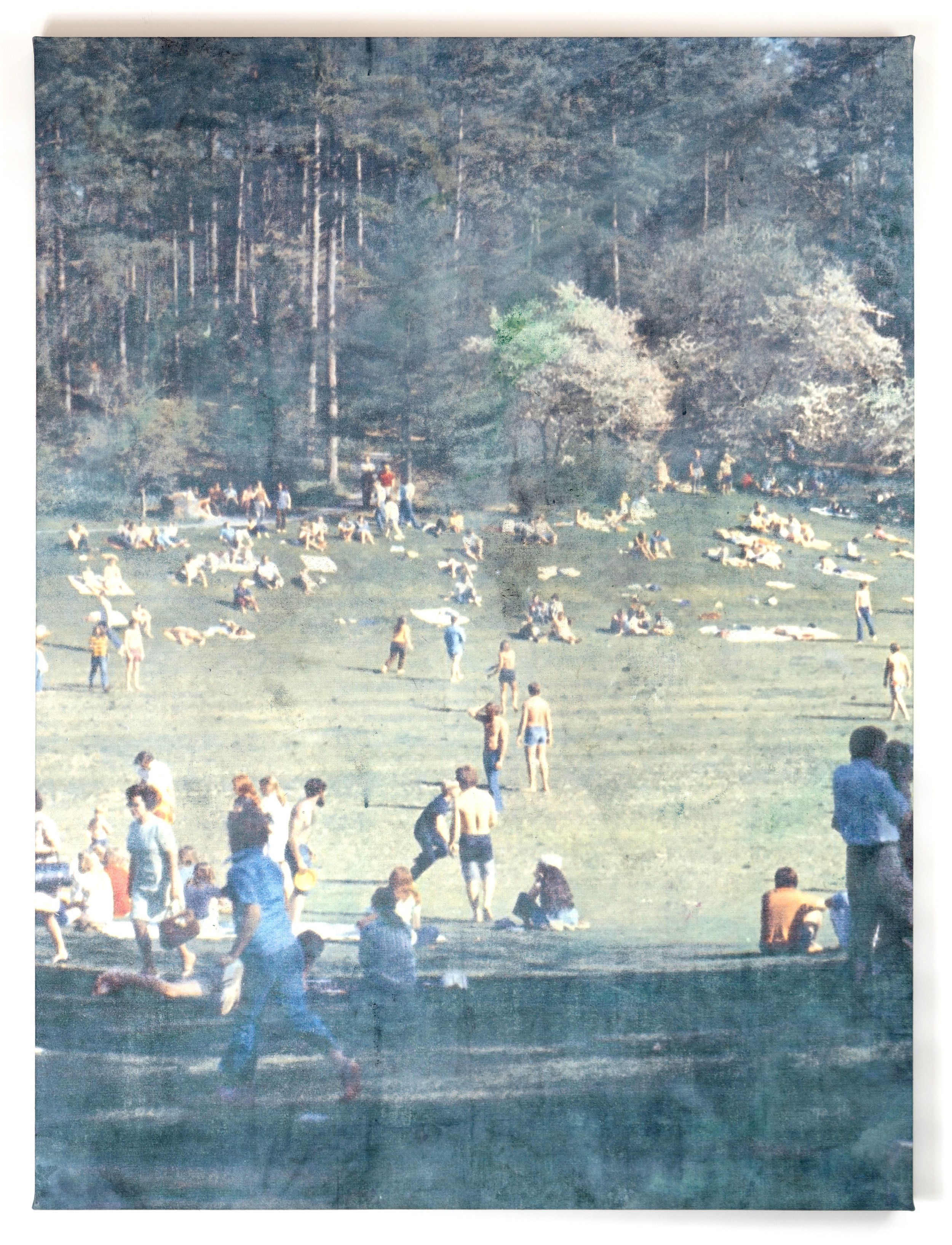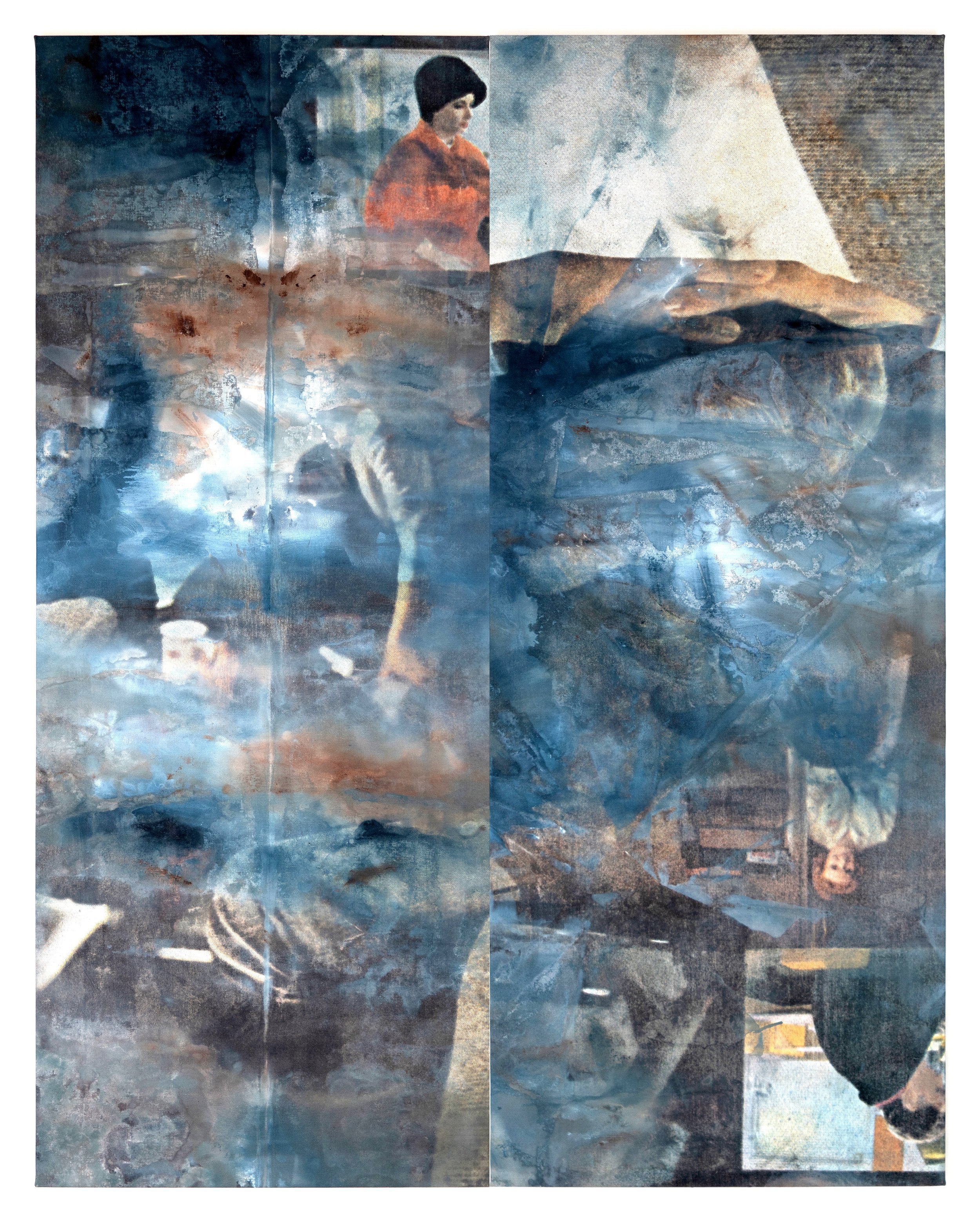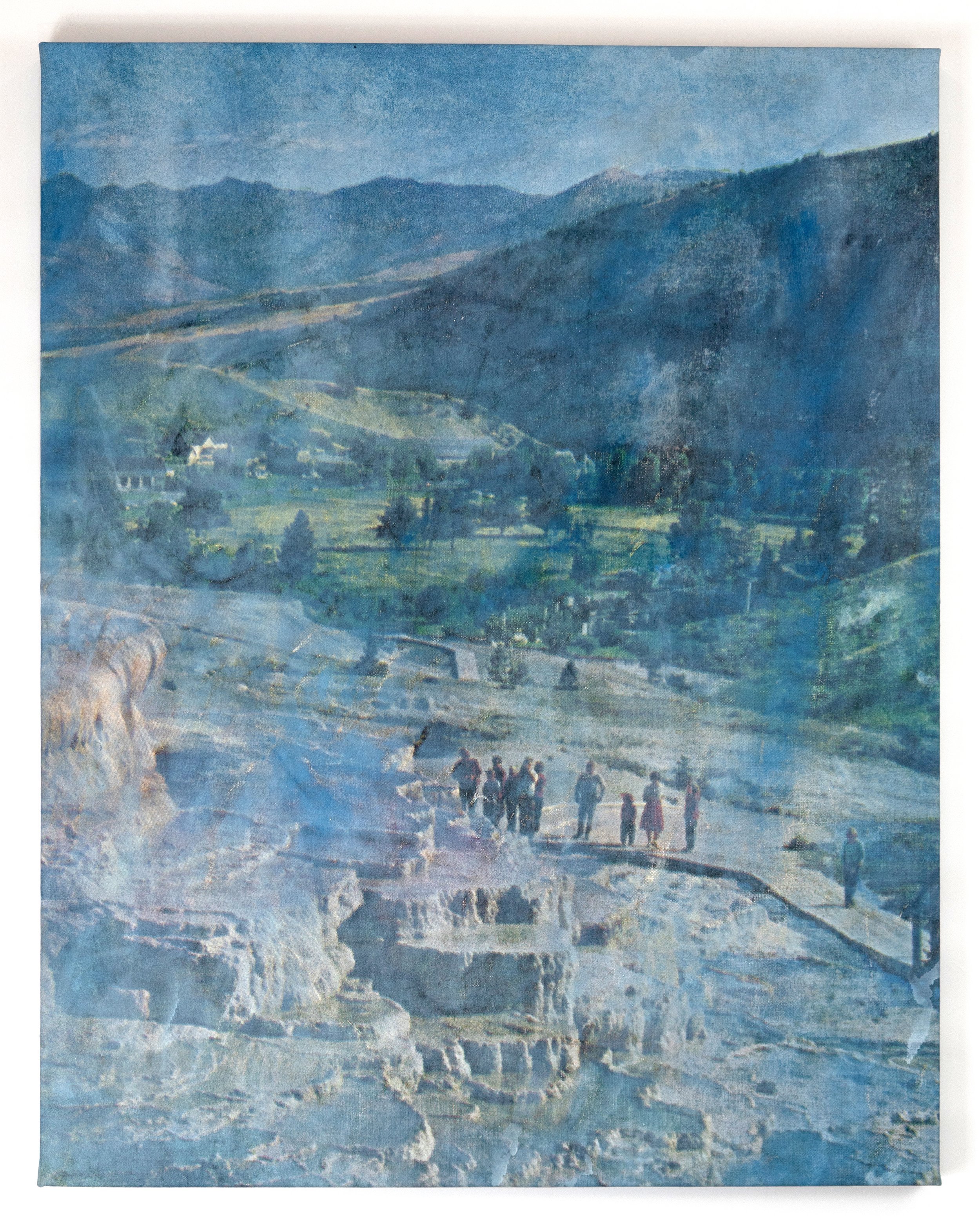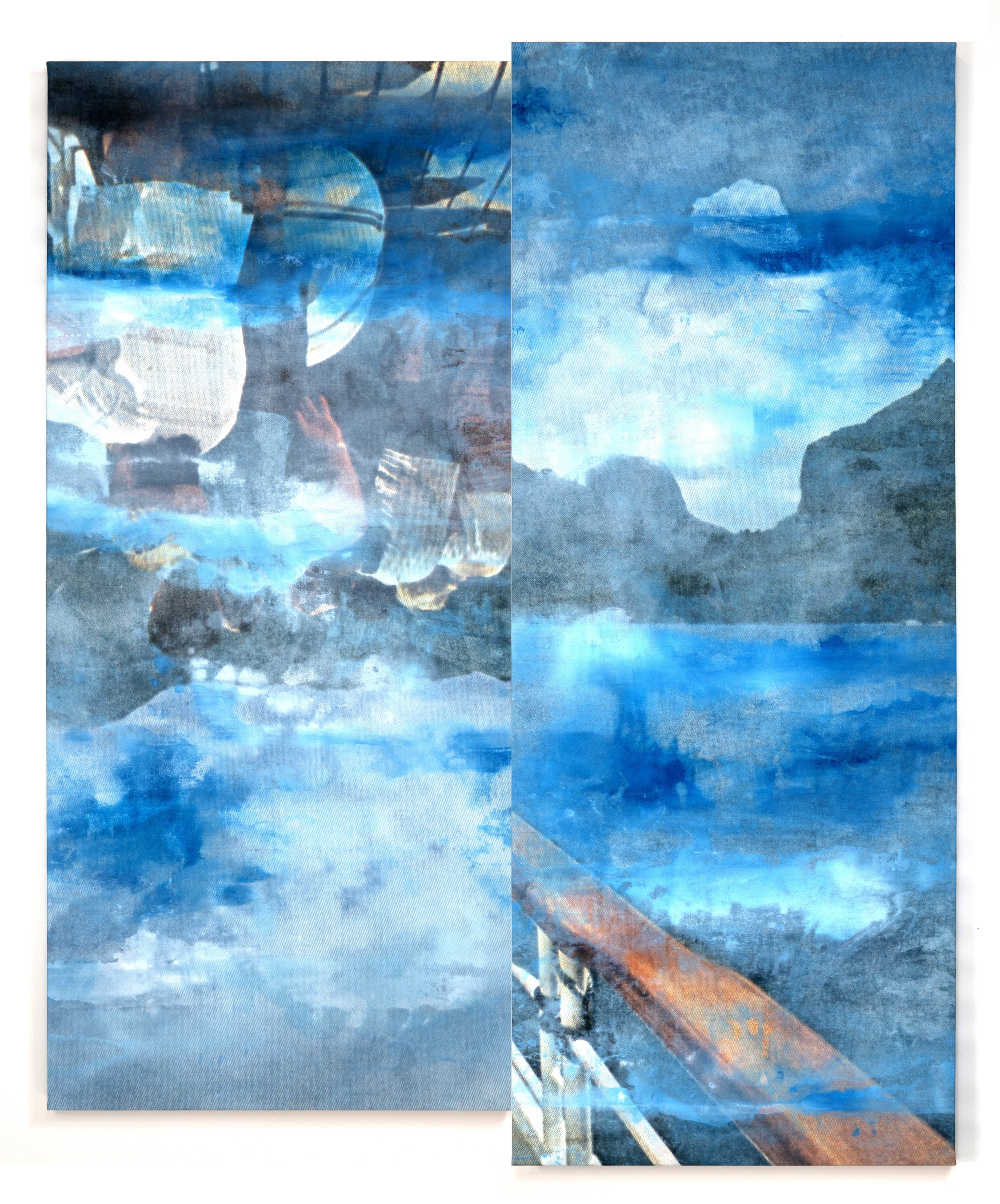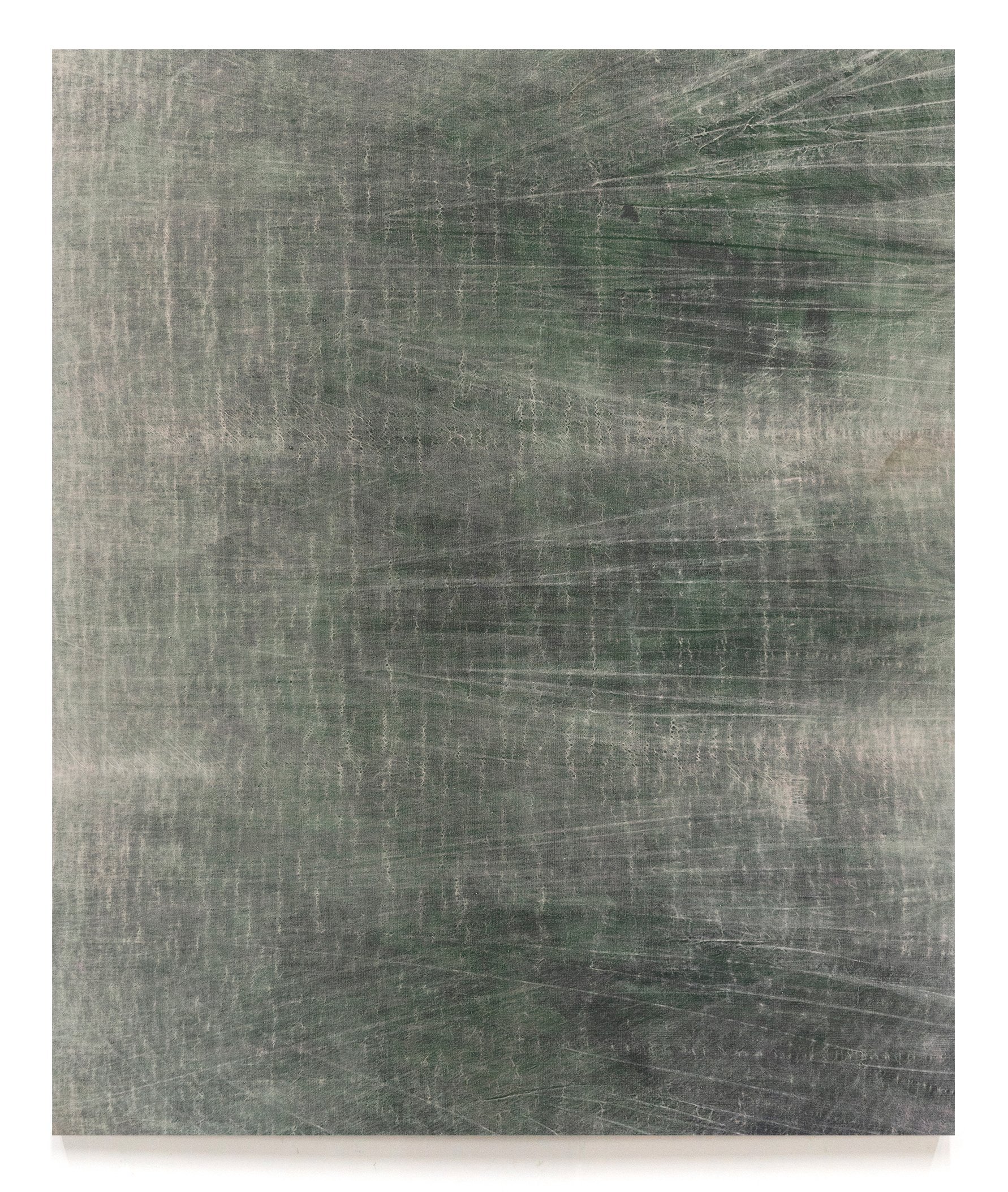Cole Sternberg
a boisterous stream in a boulder-choked channel, 2019
mixed media on linen
text by Stella Peacock-Berardini
Cole Sternberg scratches against the cheek of humanity, inviting the ideals of people in, while simultaneously belittling or questioning our existence, present and future. Sternberg's work provides a sort of kaleidoscopic effect veiling over images or winding paths and curves throughout the works, almost as if to represent the blurred lines and alternative routes our future plays as we grow in our society. It is not quite misanthropic, but provides skeptic views around human life itself, in examples such as the titles, but what may we say ourselves and the flock?, and questions he proposes in other pieces. Within this show, he provides a distinct visual of how little we, as humans, really are, in which these curves of nature stand taller and stronger then we have been for centuries. We idolize these monuments throughout earth, while we simultaneously destroy them. This ironic analysis of nature's play within the avaricious mindset of the world today provides a start into deeper queries or fascination with the environment, especially considering current climate change worries. It proposes this idea, what if nature fought back, what if it already is? In, by reason of the high hills, the long green hills and thick wilderness juxtapose the wet, layered rocks that compete with the humans attention, the rocky wetlands win that battle, as the people consume nature's beautiful curves and ridges. The hard surfaces and towering landscapes devour the humans in, who stand miniscule compared to the surrounding land, enthralled by the natural entertainment of water rushing past, and the breeze through the rugged trees. A milky storm blue encloses this piece, as a film between the lives of the humans in the work, and the enjoyers of this piece. As the audience, we interrupt this moment between a family and the vast wilderness, becoming a part of the phenomenon once again, fascinated by the view we have been seduced by, unaware of our effect on the future of this landscape, or ignorant of our effects at the very least. The meandering and complex lines or curves in this show as well, which shape the pieces with its x-ray appearing layer in parts of the work, summons you in deeper, unsure if we are staring at a birds eye view of a lengthy canyon or the grips of a pterodactyls claws. The abstraction of the images provided in this show, allows Sternberg to reference and evolve common ideals and values of our cultural identity. It provides a memory you may relate with, or find yourself creating fictitious familial trips, yet also questioning the consciousness of people, and our ability to reflect on the intersectionality between the industrialization of the world, and the earth we have molded to our needs, for better or worse. How or will we depart from the trends of destruction we became attuned too? Sternberg pleases the eye with this work, and positively disrupts the human mind with fears we wish to avoid. Departed for the curve will be on view until July 30, 2022 at Praz Delavallade.

